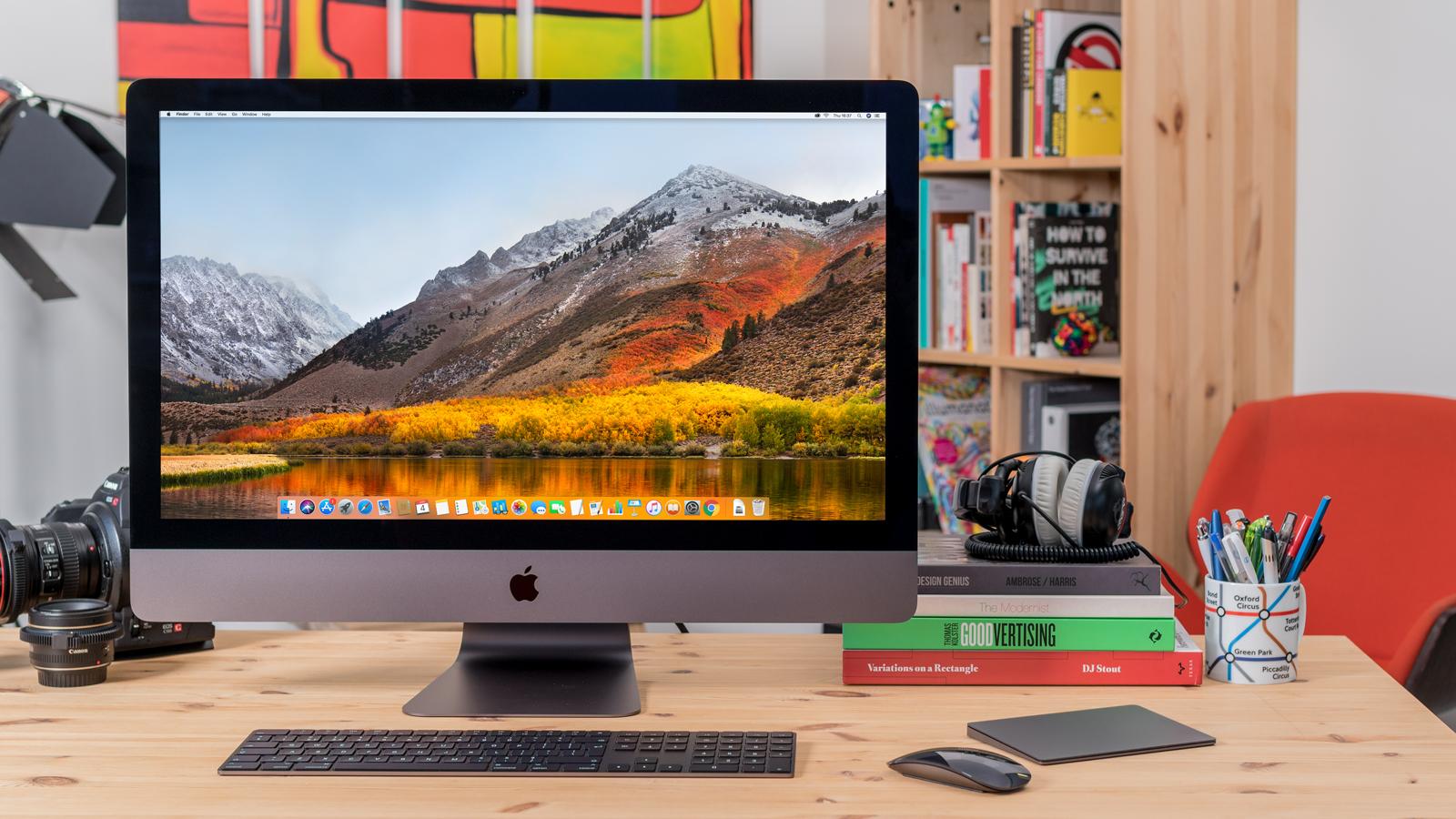
While writing another of my joke preview articles for yesterday’s “Scary Fast” Mac launch event, I came up with the silly idea that Apple would sell the iMac in new stripy and spotty finishes. Needless to say, this didn’t happen. But I was disappointed that the company didn’t meet me halfway.
This isn’t to say there were no fun color-related announcements to be enjoyed. It’s just that they happened elsewhere in the show. I’m talking about Space Black, of course, which will be available on the higher-end MacBook Pro for the first time and looks, frankly, absurdly cool. (I’m a sucker for the gloomier color palettes and sometimes wonder if the stunning Space Grey finish of the 2018 iMac Pro was what pushed it up from 3.5 to 4 stars. I’d like to think it was the redesigned thermal system, but look at the matching keyboard! It’s a thing of beauty.)
I’d happily vote for Space Black filtering through to the entire Mac range, but based on the iMac Pro it’s likely to be kept back as a perk for the big spenders. As we all know, in Apple land entry-level buyers get bright colors, while the pros get graphite, titanium, and blues and purples so sober and sensible they could get a job in the British Civil Service.

Dominik Tomaszewski / Foundry
So much for the laptop department. But the iMac? Nothing doing, color-wise. This seems a shame, particularly given the lack of other upgrades.
When the 24-inch iMac made its debut in 2021, it felt like a breath of fresh air. Sure, there were flaws–the bezel can be a distraction, and the screen will feel undersized to some—but it was a fun update to a beloved product line that made a valiant attempt to put the “personal” in “personal” computer.
Two and a half years on, it might have been optimistic to expect another major revamp, but even a pessimist would have found last night’s iMac announcements a disappointment. It got a new (M3) chipset, a welcome and indeed overdue upgrade, considering the iMac had been stuck on M1 and never made the switch to the M2 generation. But other than that, Apple’s marketing department was given little to work with. It’s no wonder this was the shortest Apple event in years.

Foundry
We know that Cupertino is reluctant to iterate too fast, since most of the time the company is competing with its own last-gen products more than contemporary rivals and doesn’t want to make things too difficult for itself next year. Each product needs to be just enough better than the previous one in that nobody gets angry (or rather, that the correct group of people gets angry, while the others are given just enough pretext to be performatively impressed), but not so much better that it will be a hassle to surpass it in the next generation. Perhaps this is why the 2023 iMac is literally just the 2021 iMac with a new processor crammed hastily inside. It’s exactly as good as it needs to be, and not an iota more.
But the iMac, more perhaps than any other product on Apple’s books right now, has history, and doesn’t deserve to be treated as an afterthought. There was so much more Apple could have done with it–and certainly plenty of time to announce it. The rumored larger-screen (and higher-spec) version of this design would have generated real excitement. A set of design tweaks (rather than the radical redesign no one was seriously expecting) could have addressed the issues with the 2021 model without throwing out the baby with the bathwater.
If Tim Cook was feeling really adventurous we might have even seen a touchscreen display or another attempt at the iMac Pro concept. Or, as the baseline level of fun most of us felt was the minimum we could expect, the company could have done something with colors: an actual hot pink, perhaps, rather than the half-hearted pink/red combo currently on offer, or lovely Space Black.
But instead, the only color iMac fans were left with was the blues.






